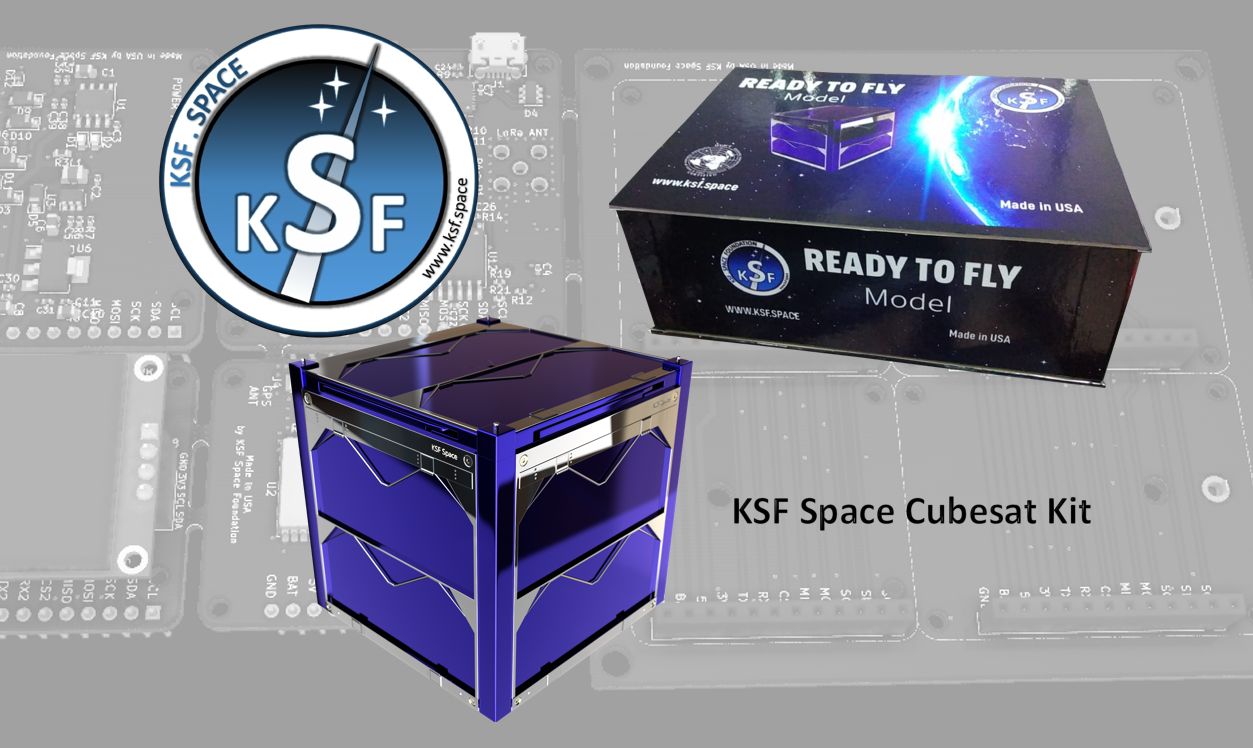The KSF Space Foundation has declared that they have provided a new board system as part of their education outreach program and are at the forefront of CubeSat technology and space missions for universities. The CubeSat education kit is now ready to be launched.
Cost-friendly CubeSat kits are accessible to universities in both developed and developing countries; they can be acquired with the limited budget of any lab or school, without having to look for additional funding. The KSF Space CubeSat Kit is quick to assemble and reasonably priced. It can be utilized by academics, government agencies, and broadcasters in addition to being purchased with normal space project budgets. It may also be purchased with regular educational funding. It allows faculty members to build spacecrafts with their teaching funds. It also reduces the danger of mission failure for faculty and students.
The circuit board was created, produced and checked to be utilized in a CubeSat that is meant to be deployed in a space at an altitude of up to 250 km. The electronics board module is a distinct, stackable board which can be joined and connected to other modules as desired. The board was developed to be light in weight, compact in size, and efficient in energy usage, leading to a cost-effective solution.
KSF Space Foundation has just launched a brand-new board for its CubeSat education kit. The board features a new electronics board component that may be interconnected and arranged in stacks. The IFGICT has tested it. The kit is easy to operate and is programmed. It has minimal power requirements, is lightweight, and is ready to fly.
The mission of the foundation is to provide universities with the opportunity to launch CubeSats and Nanosatellites to a maximum altitude of 40KM to test and collect data for climate change or any other mission they may have. This initiative is part of their goal to motivate universities to create and send their projects out into space.
The small satellite industries consider this CubeSat kit to be the least expensive around, making it an ideal choice for education and research purposes.
The KSF Space Foundation, a non-profit organization, provides low-cost access to space and near space. It provides access to a variety of scientific disciplines including space weather and inspecting tiny satellites. The organization is also a pioneer in the tiny satellite industry. As a non-profit organization, the KSF Space Foundation invites university students and faculty members to contribute to space missions. The EOP at the university gives developing countries the chance to collaborate with other missions to realize their desire for space exploration.
The KSF Space Foundation is providing totally free registration to its certified Nanosatellite Engineering Professional certification program, the “NEP Certificate,” to three individuals on the condition that they purchase a CubeSat equipment.
The model is tested and prepared for launch and can be easily combined with any additional payload if necessary. The standard model includes the main CubeSat instruments, but KSF Space Foundation offers more sophisticated alternatives depending on the mission’s requirements and objectives.
As per the Chairman of KSF Space Foundation, Dr.Kayyali, institutions with a limited budget are now able to pursue their space projects with ease, since funding is no longer an issue.
The KSF Space Foundation was created in order to provide affordable and environmentally friendly ways of reaching Low Earth Orbit. Their services can be used for a wide range of scientific and research purposes, such as Earth observation, biological testing, satellite positioning, measuring the Earth’s magnetic field, radio transmission, and atmospheric science and technology experiments.
More information about the Nanosatellite CubeSat model, visit www.ksf.space
